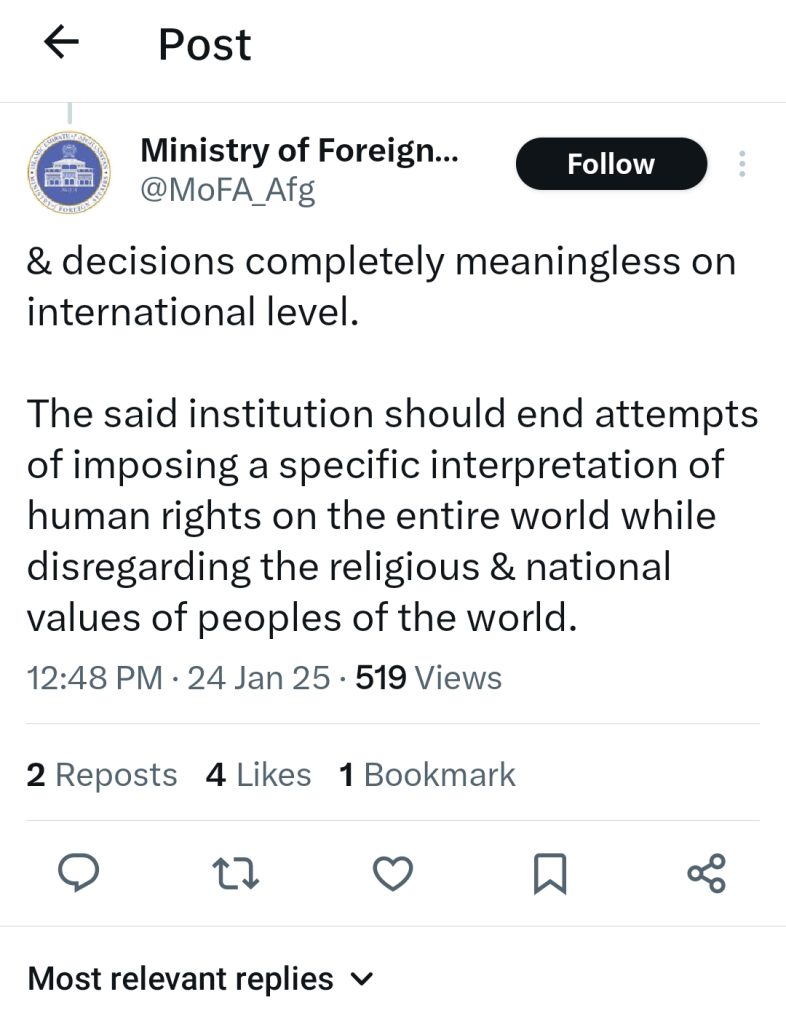Afghanistan’s Taliban government has described an arrest warrant sought by the International Criminal Court (ICC) for its leaders as “politically motivated”.
It comes a day after the ICC chief prosecutor said he was seeking warrants against senior Taliban leaders in Afghanistan over the persecution of women which is a crime against humanity.
Afghanistan Foreign Ministry posted on social media platform X said the move was meaningless and urged the ICC to interpret human rights while regarding the religious and national values of people of the world.
It also accused the institution of having turned a blind eye to war crimes and crimes against humanity committed by foreign forces and their domestic allies during the twenty-year occupation of Afghanistan.

The Taliban took back to power in 2021 after ousting the American-backed government in a rapid but largely bloodless military takeover, imposing a severe interpretation of Islamic law, or sharia, on the population and heavily restricting all aspects of women’s lives.
Afghanistan’s deputy interior minister Mohammad Nabi Omari, a former Guantanamo Bay detainee, said the ICC “can’t scare us.”
He said Israeli Prime Minister Benjamin Netanyahu, who has overseen a war in Gaza sparked by Hamas attacks, should be brought before the ICC, which issued arrest warrants last year for the Israeli leader and three Hamas officials.
Afghanistan’s government claims it secures Afghan women’s rights under sharia but many of its edicts are not followed in the rest of the Islamic world and have been condemned by Muslim leaders.
It is the only country in the world where girls and women are banned from education.
Women have been ordered to cover their hair and faces, wear all-covering Islamic dress, barred from parks, and stopped from working in government offices.
The ICC chief Karim Khan said there were reasonable grounds to suspect that Supreme Leader Haibatullah Akhundzada and Chief Justice Abdul Hakim Haqqani “bear criminal responsibility for the crime against humanity of persecution on gender grounds.”
Khan said Afghan women and girls, as well as the LGBTQ community, were facing “an unprecedented, unconscionable and ongoing persecution by the Taliban.”
The ICC judges will now consider the application before deciding whether to issue the warrants, a process that could take weeks or even months.


